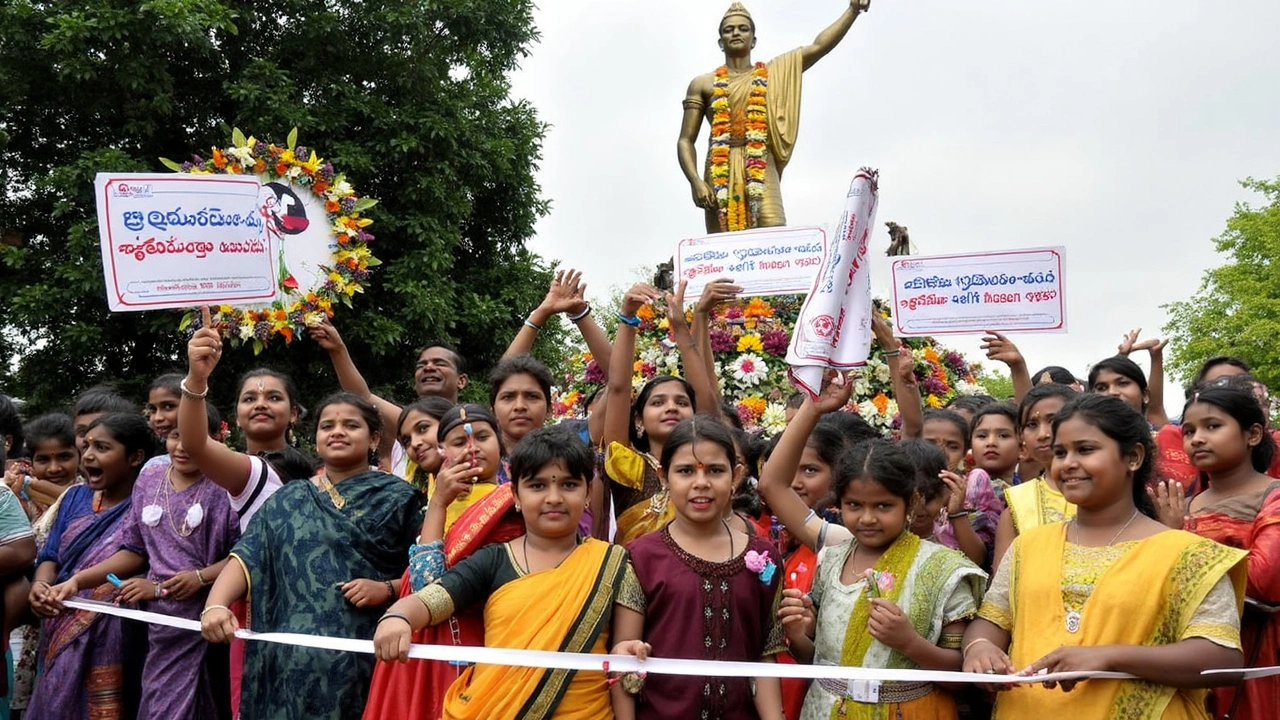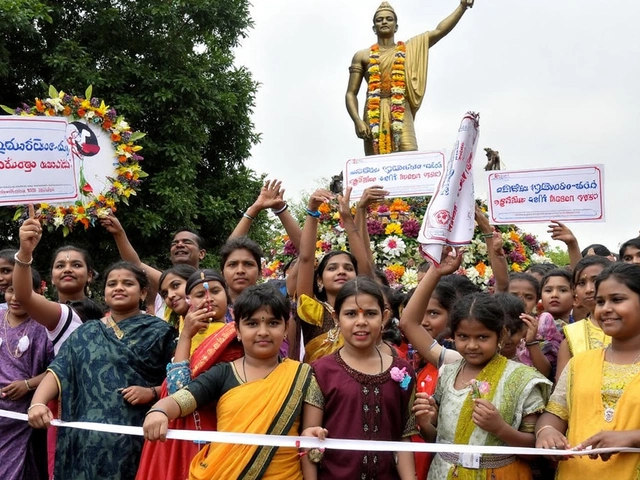Celebration of Telugu Heritage Marks International Mother Tongue Day

A Tribute to Telugu Thalli
Every year on February 21, language enthusiasts and cultural guardians celebrate International Mother Tongue Day, a day that reinforces the importance of linguistic heritage around the world. This year, in Visakhapatnam, the focal point of the celebration was the beloved Telugu Thalli statue. This iconic monument stands as a symbol of the Telugu language and its rich cultural roots, drawing a crowd of officials and citizens eager to honor their shared heritage.
At the heart of the celebrations, the Telugu Thalli monument was adorned with traditional symbols of harvest and prosperity. The crowd gathered around, dressed in vibrant traditional attire, highlighting the region's colorful history and traditions. The inclusion of the kalasam, an auspicious pot often associated with the goddess, further emphasized the cultural depth and communal spirit of the event.
Embracing Linguistic Heritage
Throughout the event, the state song ‘Mā Telugu Talliki’ played a significant role, imbuing the ceremony with a sense of historical weight and emotional resonance. The song, an ode to the mother figure of the Telugu people, echoed in the voices of attendees, reinforcing a shared cultural identity. This musical tribute extended beyond enjoyment, serving as a reminder of the language’s heritage and its emotional connections for the Telugu community.
The presence of local leaders and cultural organizations set the stage for discussions about the future of the Telugu language. They took this opportunity to express their commitment to nurturing the language through educational initiatives and cultural activities, aligning closely with UNESCO's goals for maintaining linguistic diversity. Highlighting the challenges posed by globalization, they underscored the importance of keeping local languages and traditions alive for future generations.
The energy at the event reflected a strong collective desire to protect and promote Telugu culture. It was a vibrant celebration of a language that is not just a medium of communication, but a way of life—rich in history, tradition, and community spirit. In doing so, it offered a glimpse into a collective dream: a future where the Telugu language thrives, in education, in culture, and in everyday lives.
